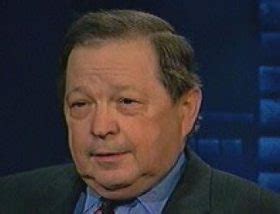A Quote by Hugo Black
In revealing the workings of government that led to the Vietnam War, the newspapers nobly did precisely that which the Founders hoped and trusted they would do.
Quote Topics
Related Quotes
I would say that the Pentagon Papers case of 1971 - in which the government tried to block the 'The New York Times' and 'The Washington Post' and other newspapers from publishing papers that they obtained from a secret study of how we got involved in the war in Vietnam - that is probably the most important case.
Most of us who were opposed to the war, especially in the early '60's - the war we were opposed to was the war on South Vietnam which destroyed South Vietnam's rural society. The South was devastated. But now anyone who opposed this atrocity is regarded as having defended North Vietnam. And that's part of the effort to present the war as if it were a war between South Vietnam and North Vietnam with the United States helping the South. Of course it's fabrication. But it's "official truth" now.
Why was the United States so afraid of an independent South Vietnam? Well, I think the reason again is pretty clear from the internal government documents. Precisely what they were afraid of was that the "takeover" of South Vietnam by nationalist forces would not be brutal. They feared it would be conciliatory and that there would be successful social and economic development - and that the whole region might work.
Thomas Jefferson despised newspapers, with considerable justification. They printed libels and slanders about him that persist to the present day. Yet he famously said that if he had to choose between government without newspapers and newspapers without government, he would cheerfully choose to live in a land with newspapers (even not very good ones) and no government.
I think that the war on drugs is domestic Vietnam. And didn't we learn from Vietnam that, at a certain point in the war, we should stop and rethink our strategy, ask ``Why are we here, what are we doing, what's succeeded, what's failed?'' And we ought to do that with the domestic Vietnam, which is the war on drugs.
The U.S. directed the war against South Vietnam. There was a political settlement in 1954. But in the late '50's the United States organized an internal repression in South Vietnam, not using its troops, but using the local apparatus it was constructing. This was a very significant and very effective campaign of violence and terrorism against the Vietminh - which was the communist-led nationalist force that fought the French. And the Vietminh at that time was adhering to the Geneva Accords, hoping that the political settlement would work out in South Vietnam.
What happened in Ukraine? The coup d'état in Ukraine has led to a civil war, because, yes, let's say, many Ukrainians no longer trusted President Yanukovych. However, they should have legitimately come to the polls and voted for another head of state instead of staging a coup d'état. And after the coup d'état took place, someone supported it, someone was satisfied with it, while others were not. And those who did not like it were treated from the position of force. And that led to a civil war.
Every book that comes out, every article that comes out, talks about how - while it may have been a "mistake" or an "unwise effort" - the United States was defending South Vietnam from North Vietnamese aggression. And they portray those who opposed the war as apologists for North Vietnam. That's standard to say. The purpose is obvious: to obscure the fact that the United States did attack South Vietnam and the major war was fought against South Vietnam.
Madame Ratignolle hoped that Robert would exercise extreme caution in dealing with the Mexicans, who, she considered, were a treacherous people, unscrupulous and revengeful. She trusted she did them no injustice in thus condemning them as a race. She had known personally but one Mexican, who made and sold excellent tamales, and whom she would have trusted implicitly, so soft-spoken was he. One day he was arrested for stabbing his wife. She never knew whether he had been hanged or not.





























